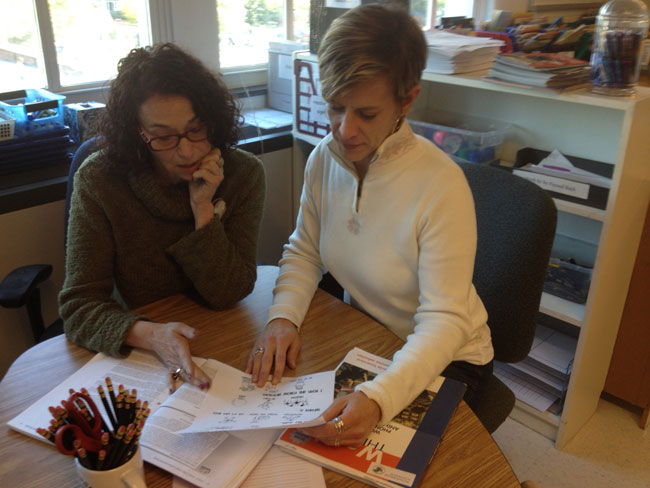 Before she was a psychology professor, Angela Duckworth taught math in middle school and high school. She spent a lot of time thinking about something that might seem obvious: The students who tried hardest did the best, and the students who didn’t try very hard didn’t do very well. Duckworth wanted to know: What is the role of effort in a person’s success? How do you measure persistence and tenacity? Can you determine a student’s grit score?
Before she was a psychology professor, Angela Duckworth taught math in middle school and high school. She spent a lot of time thinking about something that might seem obvious: The students who tried hardest did the best, and the students who didn’t try very hard didn’t do very well. Duckworth wanted to know: What is the role of effort in a person’s success? How do you measure persistence and tenacity? Can you determine a student’s grit score?
Now Duckworth is an assistant professor at the University of Pennsylvania, and her research focuses on a personality trait she calls “grit.” She defines grit as “sticking with things over the very long term until you master them.” In a paper, she writes that “the gritty individual approaches achievement as a marathon; his or her advantage is stamina.” [more from PublicRadio.org…]
Find your grit score:
- 12-Item Grit Scale
- 8-Item Grit Scale
- 8-Item Grit Scale (for children)
- 8-Item Grit Scale (Chinese)
Related Blog Posts
- True Grit: Teaching Character Skills in the Classroom
- We Can Teach Our Students to be Smart
- Key Messages That Support The Learning Process
- Key Messages that Instill a Growth Mindset for Students
 In his book,
In his book,  7 technology tips parents can incorporate into the family routine to promote responsible use of technology in the learning process.
7 technology tips parents can incorporate into the family routine to promote responsible use of technology in the learning process.